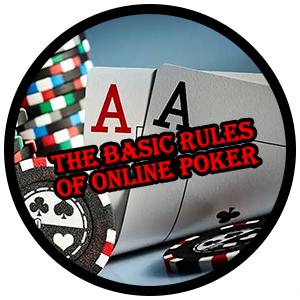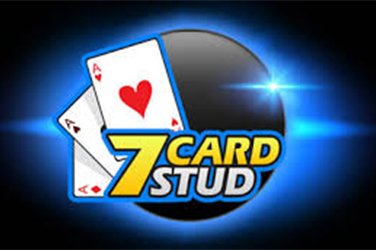How To Learn To Play Poker
How To Learn To Play Poker – Are you ready to join the elite ranks of poker players? Unlock the secrets of this captivating game and embark on an exciting journey towards becoming a poker master. Our How To Learn To Play Poker guide on learning to play poker will equip you with the skills and strategies needed to conquer the tables. Understanding the basics of hand rankings to honing your bluffing techniques, our step-by-step tutorials and expert tips will guide you every step of the way. Whether you’re a complete novice or looking to sharpen your skills, our resources cater to all experience levels.

Don’t let the opportunity to dominate the poker world pass you by. Start your poker education today and gain the confidence to compete against the best. With our proven methods and insider knowledge, you’ll be ready to take on any challenge that comes your way. Unleash your potential and embrace the excitement of poker. Learn from the best, refine your strategies, and seize your victories. Get ready to make your mark in the thrilling world of poker. Begin your journey to poker greatness now with our comprehensive guide on how to learn to play poker with us today!
How To Learn To Play Poker – Are you ready to step into the thrilling world of poker? Discover the secrets to becoming a skilled player and unlocking the potential for big wins. Our comprehensive How To Learn To Play Poker guide on how to learn to play poker will equip you with the knowledge and strategies needed to dominate the tables. With expert tips, step-by-step tutorials, and practical advice, you’ll quickly grasp the fundamentals of the game.
Our guide covers everything from understanding hand rankings and table etiquette to mastering the art of bluffing and reading your opponents. Whether you’re a complete beginner or looking to enhance your skills, our comprehensive resources will take you on a journey towards poker excellence. Unlock the secrets of poker and elevate your game to new heights. Don’t miss out on the thrill, excitement, and potential riches poker offers. Start your poker journey today and become a force reckoned with at the tables. Let our guide be your roadmap to success in the captivating world of poker.

How To Learn To Play Poker
How To Learn To Play Poker & What Is The Game Of Poker?
How To Learn To Play Poker – Poker is a popular card game combining skill, strategy, and chance elements. It is played with a standard deck of 52 cards and can be enjoyed by two or more players. The objective of the game is to win the pot, which is the total amount of money or chips wagered by players during each hand.
The game of poker has a rich history that spans several centuries. Its exact origins are unclear, but it is believed to have evolved from various card games in Europe and the Middle East. Poker gained widespread popularity in the United States during the 19th century and has become one of the most recognized and played card games worldwide.

Poker has many variations, but the most popular variant is Texas Hold’em. In this variant, each player is dealt two private cards known as “hole cards.” Five community cards are then placed face-up on the table, and players use a combination of their hole cards and the community cards to make the best possible hand. The player who makes the highest-ranking hand or successfully bluffs their opponents into folding wins the pot.
The game of poker is a blend of skill and chance. While luck plays a role in the cards dealt, successful poker players rely on their skills in decision-making, probability calculation, and reading their opponents. Poker requires players to make strategic decisions based on the information available, including their own cards, community cards, and the betting actions of other players.
Key Concepts in Poker:
- Hand Rankings: Understanding hand rankings is essential in poker. The standard hand rankings, from highest to lowest, are as follows: Royal Flush, Straight Flush, Four of a Kind, Full House, Flush, Straight, Three of a Kind, Two Pair, One Pair, and High Card.
- Betting Rounds: Poker involves multiple rounds of betting, where players can either place a bet, raise the previous bet, or fold their hand. The betting rounds add complexity to the game and create opportunities for players to strategize and bluff.
- Bluffing: Bluffing is a crucial element in poker. It involves making aggressive bets or raises to deceive opponents into thinking that your hand is stronger or weaker than it actually is. Effective bluffing can help win pots even with weaker hands.
- Position: The position refers to a player’s seating arrangement at the table relative to the dealer. It affects the order of betting and provides advantages to players who act later in the betting rounds. Skilled players often leverage their position to make more informed decisions.
- Reading Opponents: Observing opponents’ betting patterns, body language, and reactions can provide valuable information about the strength of their hands. Skilled players develop the ability to read their opponents and make educated guesses about the cards they hold.
- Bankroll Management: Managing your bankroll is crucial in poker. It involves setting limits on the amount of money you are willing to risk and making informed decisions about when to bet, call, raise, or fold.
Poker is not just a game of chance but a game of skill that requires practice, knowledge, and experience to excel. Many professional poker players have dedicated countless hours honing their skills and studying the intricacies of the game.
Whether you play poker casually with friends or aspire to compete at a professional level, the game offers endless possibilities for entertainment, challenge, and strategic thinking. So gather your cards, study the rules, and embark on a poker journey filled with excitement, competition, and the thrill of the unknown.

How To Learn To Play Poker
How To Learn To Play Poker & What The Basic Terminology Of Poker?
How To Learn To Play Poker – Poker is a game with its own unique language and terminology. Understanding the key terms used in poker is essential for players to communicate effectively and thoroughly grasp the strategies and concepts involved. Whether you’re a beginner or a seasoned player looking to brush up on your knowledge, here are some of the basic terminology used in poker:
🃏 Hand: A hand refers to the combination of cards a player holds. In most poker variants, each player is dealt a specific number of cards, and the objective is to create the best possible hand using those cards.
🃏 Hole Cards: Also known as pocket cards, these are the private cards dealt face-down to each player. These cards are not revealed to the other players until the showdown.
🃏 Community Cards: In certain variants, such as Texas Hold’em and Omaha, community cards are dealt face-up on the table and are shared by all players to create their final hands. These cards are dealt in stages during the course of the game.
🃏 Pot: The pot refers to the total amount of money or chips that players wager during a hand. The winner of the hand is awarded the pot.
🃏 Blinds: Blinds are forced bets that players must place before the hand begins. The two players to the left of the dealer are typically required to post the small blind and big blind, respectively. Blinds ensure there is always something to play for in each hand.
🃏 Betting Rounds: Poker involves several rounds of betting. Each player has the option to bet, check, raise, or fold during the betting rounds, depending on the actions of the previous players. The number of betting rounds varies depending on the variant of poker being played.
🃏 Call: When a player matches the current bet or raises made by other players, it is known as a call. By calling, a player remains in the hand and continues to compete for the pot.
🃏 Raise: A raise occurs when a player increases the current bet. By raising, a player forces other players to either match the raise or fold their hands.
🃏 Fold: To fold means to discard your hand and forfeit any further involvement in the current hand. Players fold when they believe their hand is not strong enough to compete or when they wish to minimize losses.
🃏 Showdown: The showdown occurs at the end of the final betting round when the remaining players reveal their hands to determine the winner. The player with the best hand, according to the hand rankings, takes the pot.
🃏 All-In: When a player bets all of their remaining chips or money, they are said to be all-in. If other players wish to continue betting, a side pot may be created for those players with remaining chips.
🃏 Flop, Turn, and River: These terms are specific to Texas Hold’em and Omaha. The flop refers to the first three community cards dealt face-up on the table, followed by the turn (fourth community card) and the river (fifth and final community card).
🃏 Position: Position refers to a player’s seating arrangement relative to the dealer button. The positions include the early position, middle position, and late position. Players in later positions have an advantage as they get to act after other players, allowing them to make more informed decisions.
🃏 Ante: An ante is a small bet required from each player before the hand begins. Antes are commonly used in stud poker variants.
🃏 Bad Beat: A bad beat refers to a situation where a strong hand is defeated by an even stronger hand against the odds. It is often used to describe a player experiencing an unfortunate loss.
These are just some basic terms you’ll likely encounter while playing poker. You’ll encounter more specialized terminology and concepts as you delve deeper into the game. How To Learn To Play Poker; Familiarizing yourself with these terms will enhance your understanding of the game and enable you to communicate effectively with other players. So, grab your cards, learn the lingo, and dive into the exciting world of poker!

How To Learn To Play Poker
How To Learn To Play Poker & What Are The Basics Of Poker?
How To Learn To Play Poker – Poker is a popular card game that combines skill, strategy, and a bit of luck. It is played by millions of people worldwide, both in casual home games and in competitive tournaments. If you’re new to poker or looking to brush up on the basics, this guide will provide you with a solid foundation to get started.
- The Deck: Poker is typically played with a standard deck of 52 cards. The deck is divided into four suits: hearts, diamonds, clubs, and spades. Each suit has 13 ranks, ranging from Ace (highest) to 2 (lowest), followed by the numbered cards and face cards (Jack, Queen, and King).
- Hand Rankings: Understanding hand rankings is essential in poker. Here is a list of the standard hand rankings from highest to lowest:

- Royal Flush: A, K, Q, J, 10 of the same suit.
- Straight Flush: Five consecutive cards of the same suit.
- Four of a Kind: Four cards of the same rank.
- Full House: Three cards of one rank and two cards of another rank.
- Flush: Five cards of the same suit, not in consecutive order.
- Straight: Five consecutive cards of any suit.
- Three of a Kind: Three cards of the same rank.
- Two Pair: Two sets of two cards of the same rank.
- One Pair: Two cards of the same rank.
- High Card: If no player has a hand of the above ranks, the highest card in their hand determines the winner.
- Game Types: There are several variations of poker, but the most common are Texas Hold’em, Omaha, and Seven-Card Stud. Texas Hold’em is widely popular and played in most casinos and online platforms. In this game, each player is dealt two private cards (hole cards), and five community cards are placed on the table. Players must make the best possible hand using any combination of their hole and community cards.
- Betting Rounds: Poker involves a series of betting rounds where players can either bet, raise, call, or fold. The betting starts with the player to the dealer’s left and continues clockwise around the table. The betting options and rules may vary depending on the specific game variant being played. It’s essential to understand the betting structure and the different actions you can take during each round.
- Blinds and Antes: In some poker games, such as Texas Hold’em, blinds and antes are used to create an initial pot and stimulate the action. The player to the left of the dealer posts a small blind, and the player to their left posts a big blind. These are forced bets that players must make before seeing their cards. The blinds rotate around the table to ensure fairness.
- The Dealer Button: The dealer button, also known as the dealer position, indicates which player acts as the dealer for each hand. The dealer button rotates clockwise after each hand, ensuring all players take turns being in the late position and making the final betting decisions.
- Showdown: A showdown occurs if more than one player remains after the final betting round. Players reveal their hole cards, and the player with the highest-ranking hand wins the pot. In a tie, the pot is split equally between the tied players.
- Skills and Strategies: Poker is not solely a game of luck. Successful players employ various strategies and skills to gain an edge over their opponents. These include understanding probabilities, reading opponents’ behaviour and betting patterns, managing bankroll, bluffing, and making informed decisions based on the available information.
- Practice and Learning: Becoming proficient in poker takes practice and continuous learning. Start by familiarizing yourself with the rules and hand rankings. Play in low-stakes games or practice online to gain experience and refine your skills. Study poker books, watch tutorial videos, and seek advice from experienced players to enhance your understanding of the game.
- Responsible Gambling: While poker can be an enjoyable pastime, it’s essential to approach it responsibly. Set limits on your bankroll, know when to stop, and never gamble more than you can afford to lose. Poker is a game of skill, and long-term success requires discipline, patience, and responsible play.
In conclusion, How To Learn To Play Poker; understanding the basics of poker, including hand rankings, game types, betting rounds, and strategies, will set you on the path to becoming a successful player. You can develop your skills and enjoy poker’s excitement and challenges with practice and continuous learning.

How To Learn To Play Poker
How To Learn To Play Poker & How Is Poker Different Online & In Land-based Casinos?
How To Learn To Play Poker – Poker has been a popular card game for centuries, and with the advent of technology, players now have the option to play poker both online and in land-based casinos. While the game’s fundamental rules remain the same, players should be aware of several key differences between the two formats.
- Accessibility: One of the most significant differences between online poker and land-based casinos is accessibility. Online poker allows players to access games from the comfort of their own homes or on the go using their mobile devices. It eliminates the need for travel and provides 24/7 access to a wide range of games. In contrast, land-based casinos require physical presence, and players must travel to the casino to participate in games.
- Game Variety: Online poker platforms offer a wide variety of game options. Players can choose from popular variants such as Texas Hold’em, Omaha, and Seven-Card Stud. Additionally, online poker rooms often provide different tournament formats, including Sit & Go tournaments, multi-table tournaments, and cash games. In land-based casinos, the game variety may be more limited, with a focus on the most popular variants.
- Table Limits: Another notable difference is the range of table limits available. Online poker sites cater to players of all budgets, offering tables with various minimum and maximum buy-ins. This allows players to find a table that suits their bankroll. In contrast, land-based casinos often have higher minimum buy-ins, making it less accessible for players with smaller budgets.
- Game Pace: The game’s pace can differ between online poker and land-based casinos. Online poker tends to be faster-paced due to features such as automatic dealing, instant chip counts, and time limits for actions. This can result in more hands played per hour compared to a land-based casino, where the dealer physically shuffles and deals the cards, and players take their time to make decisions.
- Player Interaction: In land-based casinos, players can interact with fellow players and the dealer, creating a social and immersive experience. This face-to-face interaction can add an extra element of excitement to the game. On the other hand, online poker lacks the same level of direct interaction, although many online platforms provide chat features allowing players to communicate.
- Tells and Body Language: One more prominent aspect of land-based casinos is the ability to observe opponents’ body language and facial expressions for potential tells. These non-verbal cues can provide valuable information about the strength of their hand. In online poker, players rely more on betting patterns, timing, and previous hand history to make reads on their opponents.
- Game Integrity and Security: Online poker sites employ advanced security measures to ensure game integrity and protect players’ funds. Random Number Generators (RNGs) are used to ensure fairness in card distribution, and encryption technology safeguards financial transactions. However, some players may still be concerned about online platform security. In land-based casinos, players can physically witness the cards being dealt, offering a sense of transparency and security.
- Skill Levels: The skill level of players can vary in both online poker and land-based casinos. Online poker attracts a wide range of players, including recreational players, experienced players, and professionals. The anonymity of online play allows beginners to practice and improve their skills without the pressure of face-to-face interactions. In land-based casinos, the player pool may consist of a mix of casual players and more experienced individuals.
- Bonuses and Rewards: Online poker sites often provide bonuses and rewards programs to incentivize players. These can include welcome bonuses, loyalty programs, and frequent player points. Land-based casinos also offer rewards, but they may be more focused on comps such as free drinks, meals, or accommodations.
- Flexibility and Multi-tabling: Online poker offers the flexibility of playing multiple tables simultaneously, commonly known as multi-tabling. This allows players to increase their volume and potentially their profits. In land-based casinos, players are limited to playing at one table at a time, reducing the potential for multi-tabling.
In conclusion, while the core rules of poker remain consistent, there are notable differences between playing online and in land-based casinos. How To Learn To Play Poker Online; poker offers convenience, game variety, flexible table limits, and a faster pace, while land-based casinos provide a social experience, physical tells, and the excitement of face-to-face play. Ultimately, the choice between online and land-based poker comes down to personal preference and the specific experience that each player seeks.

How To Learn To Play Poker
How To Learn To Play Poker & What Are The Best Strategies In Poker?
How To Learn To Play Poker – Poker is a game of skill and strategy that requires a combination of mathematical calculations, psychological tactics, and decision-making abilities. Whether you’re a beginner or an experienced player, understanding and implementing effective strategies can significantly improve your chances of success at the poker table. Here are some of the best strategies to consider:
🏆 Starting Hand Selection: One of the fundamental aspects of poker strategy is knowing which hands to play and which to fold. Starting hand selection involves assessing the value of your hole cards based on their potential to form strong hands. Familiarize yourself with hand rankings and understand which hands are more likely to win. This strategy helps you avoid playing weak hands and allows you to focus on maximizing your profits with strong starting hands.
🏆 Positional Awareness: Positional awareness refers to understanding the importance of your position at the poker table and leveraging it to your advantage. Players in late position have more information about their opponents’ actions, allowing them to make more informed decisions. Use this knowledge to play more aggressively in late position and be more cautious in early position. Playing hands strategically based on your position can give you a significant edge over your opponents.
🏆 Reading Opponents: Developing the ability to read your opponents and decipher their playing styles is crucial in poker. Pay attention to their betting patterns, body language, and any other behavioral cues that can give you insights into their hand strength. This information helps you make better decisions, such as whether to bluff, call, or fold. The more you observe and analyze your opponents, the better you become at exploiting their weaknesses and adjusting your strategy accordingly.
🏆 Bankroll Management: Proper bankroll management is essential for long-term success in poker. Set aside a dedicated bankroll for playing poker and avoid risking too much of your funds in a single session. A general guideline is to play with a maximum of 5% of your total bankroll in any given game. This strategy ensures that you can withstand losses and have enough funds to capitalize on winning opportunities.
🏆 Bluffing and Semi-Bluffing: Bluffing is a strategy where you bet or raise with a weaker hand to deceive your opponents into folding stronger hands. It is a powerful tool when used strategically, but it requires careful consideration of the table dynamics and your opponents’ tendencies. Semi-bluffing, on the other hand, involves betting with a drawing hand that has the potential to improve. It puts pressure on opponents and gives you multiple ways to win the pot. Mastering the art of bluffing and semi-bluffing can significantly enhance your profitability in poker.
🏆 Pot Odds and Equity: Understanding pot odds and equity is crucial for making informed decisions in poker. Pot odds refer to the ratio of the current pot size to the cost of a contemplated call. By comparing the pot odds to the odds of completing your hand, you can determine whether a call is profitable in the long run. Equity, on the other hand, represents your share of the pot based on your chances of winning. Evaluating pot odds and equity allows you to make mathematically sound decisions and maximize your expected value.
🏆 Table Image: Your table image is how your opponents perceive your playing style. It is important to cultivate a balanced table image to avoid being too predictable. If you are seen as overly aggressive, opponents may play back at you, while if you are perceived as too tight, they may exploit your cautiousness. Mix up your play, vary your bet sizes, and maintain unpredictability to keep your opponents guessing.
🏆 Emotional Control: Emotional control is vital in poker, as it helps you make rational decisions even in high-pressure situations. Avoid letting emotions, such as frustration or tilt, influence your play. Maintain discipline and stay focused on the long-term goals of the game. Accept that there will be ups and downs and approach each hand with a clear mind.
🏆 Continuous Learning: Poker is a game that constantly evolves, and the best players continuously seek to improve their skills. Stay updated with the latest strategies, study poker books, watch training videos, and analyze your own gameplay. Actively engage in forums and discuss hands with other players to gain different perspectives. The more you invest in learning and refining your strategy, the better your results will be.
🏆 Practice and Experience: The best way to improve your poker strategy is through practice and experience. Play regularly, both online and in live games, to sharpen your skills and gain insights into different playing styles. Reflect on your gameplay, analyze your mistakes, and identify areas for improvement. As you accumulate more hands and learn from your experiences, your strategic decision-making will become more refined.
Remember that poker is a game of skill and patience. It takes time and dedication to become a proficient player. Embrace the learning process, adapt your strategies to different situations, and enjoy poker’s excitement and challenges.
How To Learn To Play Poker, by implementing strategies such as starting hand selection, positional awareness, reading opponents, bankroll management, bluffing, understanding pot odds and equity, managing your table image, emotional control, continuous learning, and gaining practical experience, you can enhance your overall performance and increase your chances of success in poker.

How To Learn To Play Poker
How To Learn To Play Poker & What Are The Different Variants Of Poker?
How To Learn To Play Poker – Poker, one of the most popular card games in the world, has a wide range of exciting variants that cater to different playing styles and preferences. Each variant has its own unique rules, strategies, and dynamics, providing players with endless entertainment and opportunities to showcase their skills. Let’s explore some of the most popular variants of poker:
- Texas Hold’em: Texas Hold’em is the most widely played variant of poker. In this community card game, players are dealt two private cards and must combine them with five community cards to form the best possible five-card hand. The game features multiple betting rounds, including pre-flop, flop, turn, and river, offering strategic decision-making and intense competition. Texas Hold’em is the flagship variant of the World Series of Poker (WSOP) and is commonly seen in both live and online poker rooms.
- Omaha Hold’em: Omaha Hold’em is another community card game, similar to Texas Hold’em. However, in Omaha, players receive four private cards instead of two. To create a hand, players must use exactly two of their private cards and three of the community cards. The extra cards increase the potential for stronger hands, making Omaha a more action-packed variant with bigger pots and more challenging decision-making.
- Seven-Card Stud: Seven-Card Stud is a classic variant that was widely played before the rise of Texas Hold’em. In this game, each player receives seven cards, with three of them face-down and four face-up. Players must use their best five-card hand from the seven cards they are dealt. Seven-Card Stud requires a combination of reading opponents’ visible cards and understanding the probabilities of unseen cards.
- Razz: Razz is a lowball variant of poker, where the goal is to make the lowest possible hand. The game follows the rules of Seven-Card Stud, but the hand rankings are reversed. In Razz, the best possible hand is Ace-2-3-4-5, also known as the “wheel.” Razz provides a refreshing change of pace and strategic challenges for players accustomed to traditional high-hand games.
- Five-Card Draw: Five-Card Draw is a simple and straightforward variant where each player is dealt five private cards. After the initial deal, players have the opportunity to discard and replace any number of cards. The objective is to make the best five-card hand after the draw. Five-Card Draw is often played casually and is a great entry point for beginners to learn the basics of poker.
- Omaha Hi-Lo: Omaha Hi-Lo, also known as Omaha 8 or Better, is a split-pot variant of Omaha Hold’em. In this game, the pot is divided between the player with the best high hand and the player with the best low hand. To qualify for the low hand, a player must have five unpaired cards with a value of 8 or lower. Omaha Hi-Lo adds an extra layer of complexity by introducing the possibility of winning both the high and low portions of the pot.
- Caribbean Stud Poker: Caribbean Stud Poker is a casino-banking game where players compete against the dealer, rather than against each other. Each player is dealt five cards, while the dealer receives four cards face-down and one card face-up. Players must decide whether to fold or raise based on the strength of their hand. Caribbean Stud Poker offers an exciting twist on traditional poker, combining elements of strategy and luck.
These are just a few of the many variants of poker available today. Each variant offers its own set of rules, strategies, and excitement, ensuring a poker game for every type of player. Whether you prefer the strategic battles of Texas Hold’em, the stud-style play of Seven-Card Stud, or the low-hand challenges of Razz, the world of poker is full of thrilling options to explore and play. Here are the top three poker games to play at the best poker casinos if you want to know how to learn to play poker!
As you delve into the diverse world of poker variants, remember to familiarize yourself with the rules and strategies specific to each game. Understanding the nuances of each variant will enhance your overall poker experience and provide endless hours of entertainment. How To Learn To Play Poker; So, gather your chips, hone your skills, and embark on a poker journey filled with thrilling twists and turns in the world of variant poker games.

How To Learn To Play Poker
How To Learn To Play Poker & The History Of Poker
How To Learn To Play Poker – Poker, one of the most popular card games in the world, has a rich and fascinating history that spans several centuries. The origins of poker can be traced back to various ancient card games and gambling activities, evolving over time to become the game we know today. Let’s delve into the intriguing history of poker and how it has evolved throughout the years.
The exact origins of poker are somewhat unclear, as several games involving cards and betting existed in different cultures. However, it is widely believed that poker has its roots in a Persian game called “As-Nas,” which dates back to the 16th century. As-Nas was a five-card game that involved rounds of betting and hand rankings.
In the 17th century, a game called “Poque” emerged in France. Poque was similar to As-Nas and involved bluffing and betting. French colonists later brought this game to North America, particularly to New Orleans and the surrounding areas. The French influence in these regions led to the development of a new variant called “Poker,” derived from the word “Poque.”

During the 19th century, poker gained popularity in the United States, spreading across the country during the era of the Wild West. The game was played in saloons and on riverboats, attracting gamblers and adventurers alike. During this time, poker began to incorporate a 52-card deck and the concept of five-card hands with various rankings.
As the game continued to evolve, new variants and variations emerged. Stud poker became popular, where players were dealt a combination of face-up and face-down cards. Draw poker, where players could discard and replace cards, also gained traction. The introduction of community card games like Texas Hold’em further expanded the possibilities and strategies of poker.
The 20th century marked a significant milestone in the history of poker with the advent of the World Series of Poker (WSOP) in 1970. The WSOP, held annually in Las Vegas, became the pinnacle of poker tournaments, attracting the best players from around the world. The tournament’s popularity soared with the introduction of television coverage, bringing the excitement of high-stakes poker into people’s homes.
With the rise of the internet in the late 20th century, poker experienced another transformation. Online poker platforms emerged, allowing players to compete against each other virtually. This online poker boom brought the game to a whole new audience and created opportunities for players to participate in tournaments and cash games from the comfort of their homes.
Today, poker continues to thrive both in traditional brick-and-mortar casinos and online. It has become a global phenomenon, with millions of players engaging in cash games, tournaments, and professional circuits. The game has evolved into a skill-based competition, attracting players from all walks of life and offering substantial prize pools.
The history of poker is a testament to its enduring appeal and adaptability. From its humble origins in ancient card games to the glitz and glamour of modern-day tournaments, poker has captured the hearts of players and continues to be a beloved pastime worldwide.
Whether you’re a casual player looking to enjoy a friendly game with friends or an aspiring professional aiming for the top, poker’s rich history provides a foundation to appreciate the strategies, dynamics, and excitement that make it a truly remarkable game. So, shuffle up, deal the cards, and let the legacy of poker inspire your own thrilling journey at the tables.

How To Learn To Play Poker FAQ
What is Poker?
Poker is a popular card game that involves strategic gameplay and betting. Players aim to have the best hand or convince their opponents to fold.
How many players are typically involved in a game of Poker?
Poker games can range from 2 to 10 players, depending on the variant being played.
What are the basic hand rankings in Poker?
The basic hand rankings, from highest to lowest, are Royal Flush, Straight Flush, Four of a Kind, Full House, Flush, Straight, Three of a Kind, Two Pair, One Pair, and High Card.
What is Online Poker?
Online Poker refers to playing poker games over the internet on dedicated poker platforms or websites. It allows players to compete with opponents from around the world.
Is Online Poker Safe?
Reputable online poker sites employ advanced security measures to protect players’ personal and financial information. Stick to licensed and regulated platforms to ensure a safe gaming experience.
How To Learn To Play Poker?
Learning to play poker involves understanding the rules, hand rankings, and various strategies. You can learn through online tutorials, books, joining poker communities, or even hiring a poker coach.
What are the different variants of Poker?
Popular variants of poker include Texas Hold’em, Omaha, Seven-Card Stud, and Five-Card Draw. Each variant has its own rules and gameplay.
What are the key skills needed to succeed in Poker?
Successful poker players possess skills such as critical thinking, decision-making, probability analysis, bankroll management, and the ability to read opponents’ behaviour.
Can I play Poker for real money online?
Many online poker platforms offer real money games, allowing players to compete for cash prizes. However, make sure to play responsibly and within your means.
Are there any poker tournaments I can participate in?
Online poker platforms host various tournaments, including freerolls (free entry), sit-and-go tournaments, and multi-table tournaments. These provide opportunities to compete against other players and win substantial prizes.





































